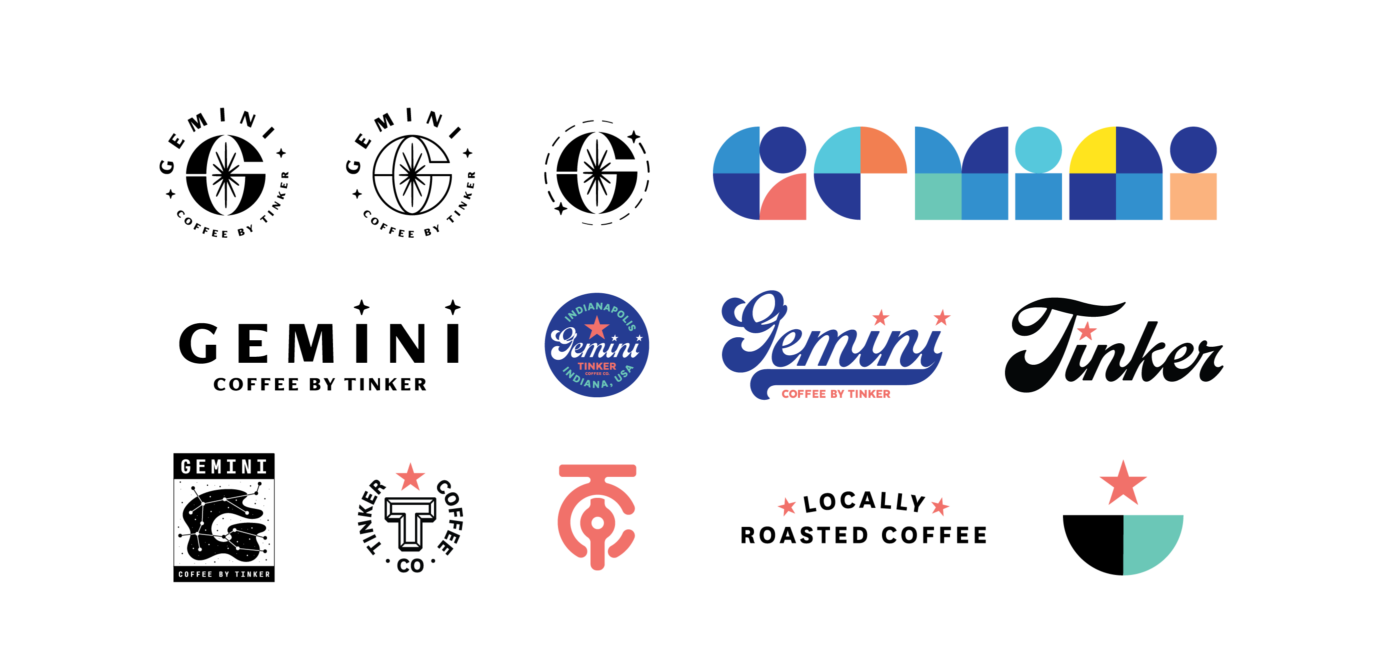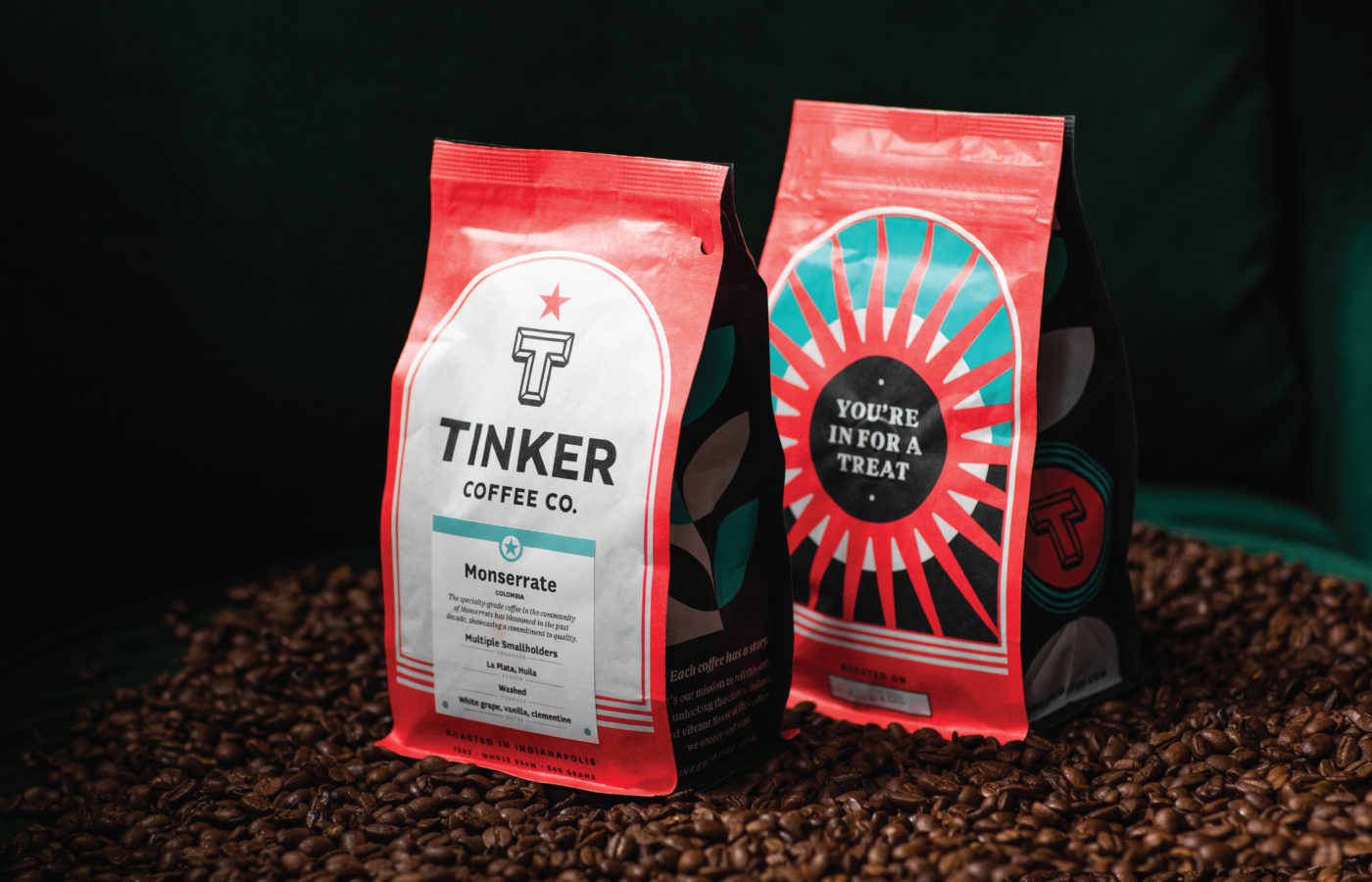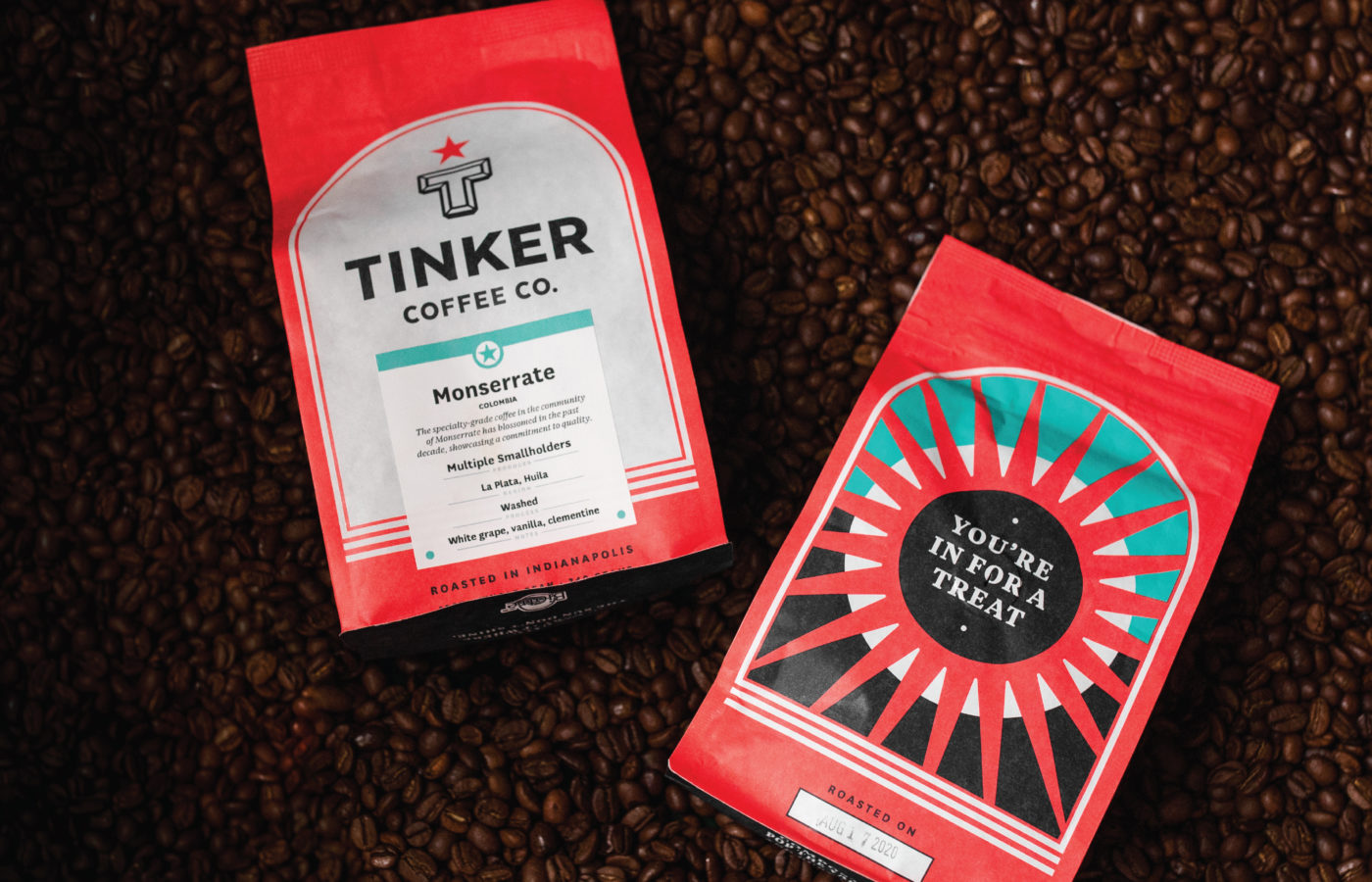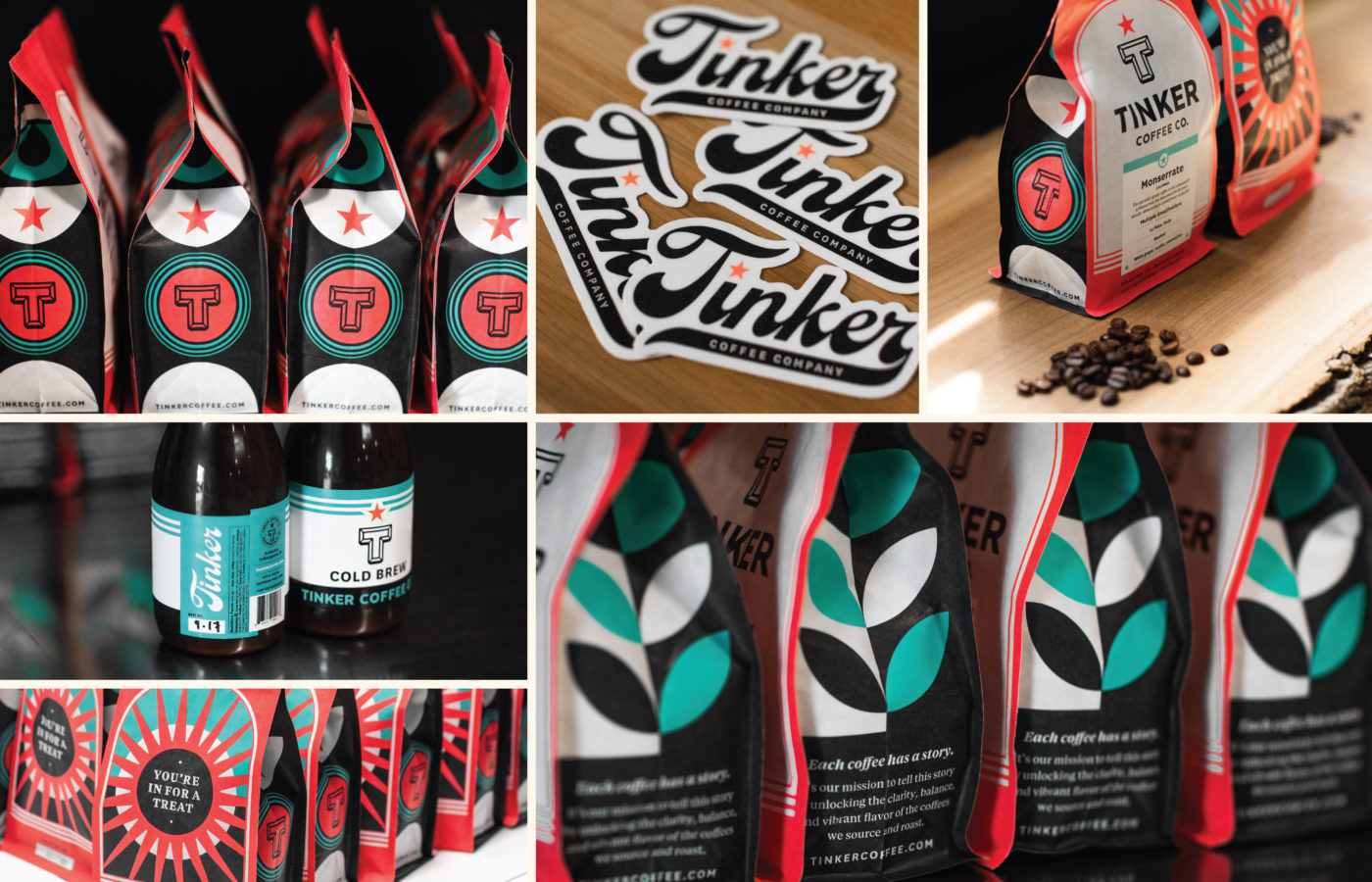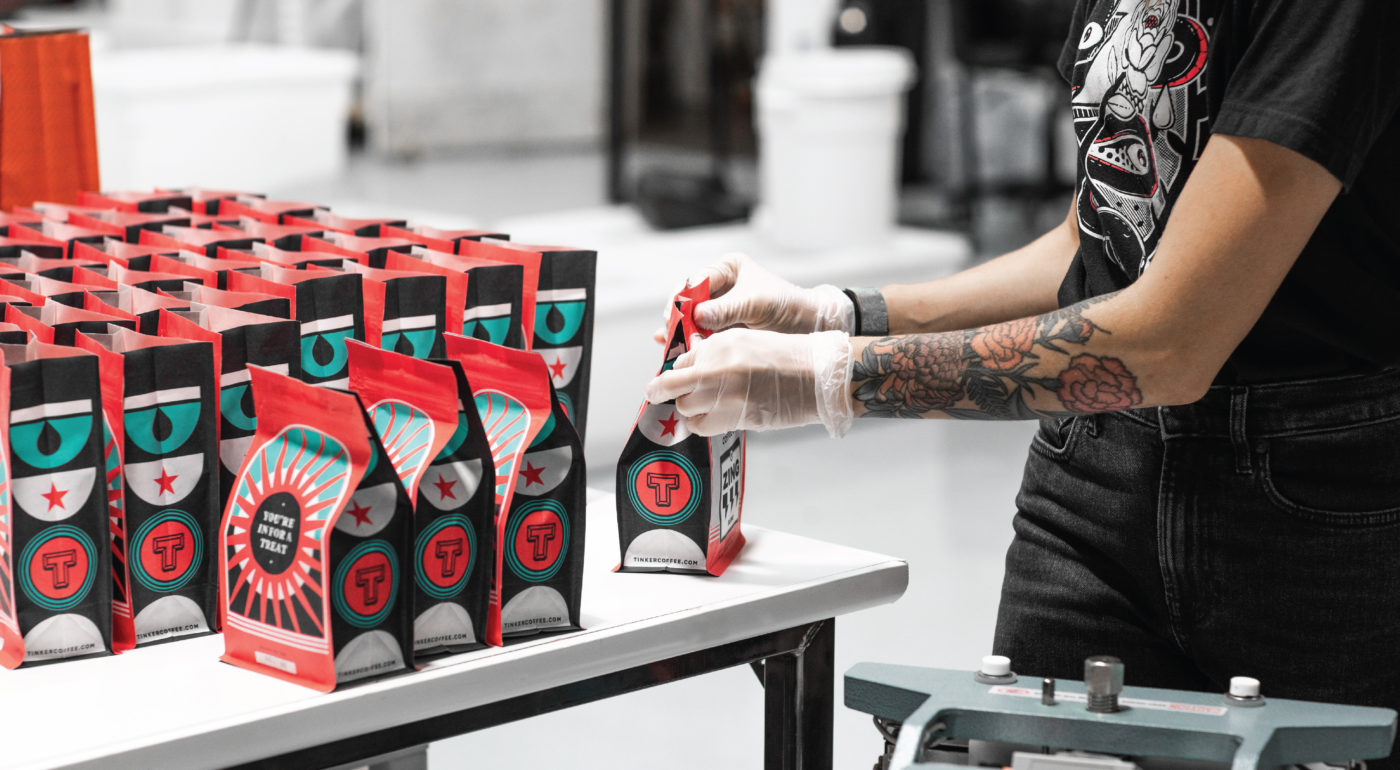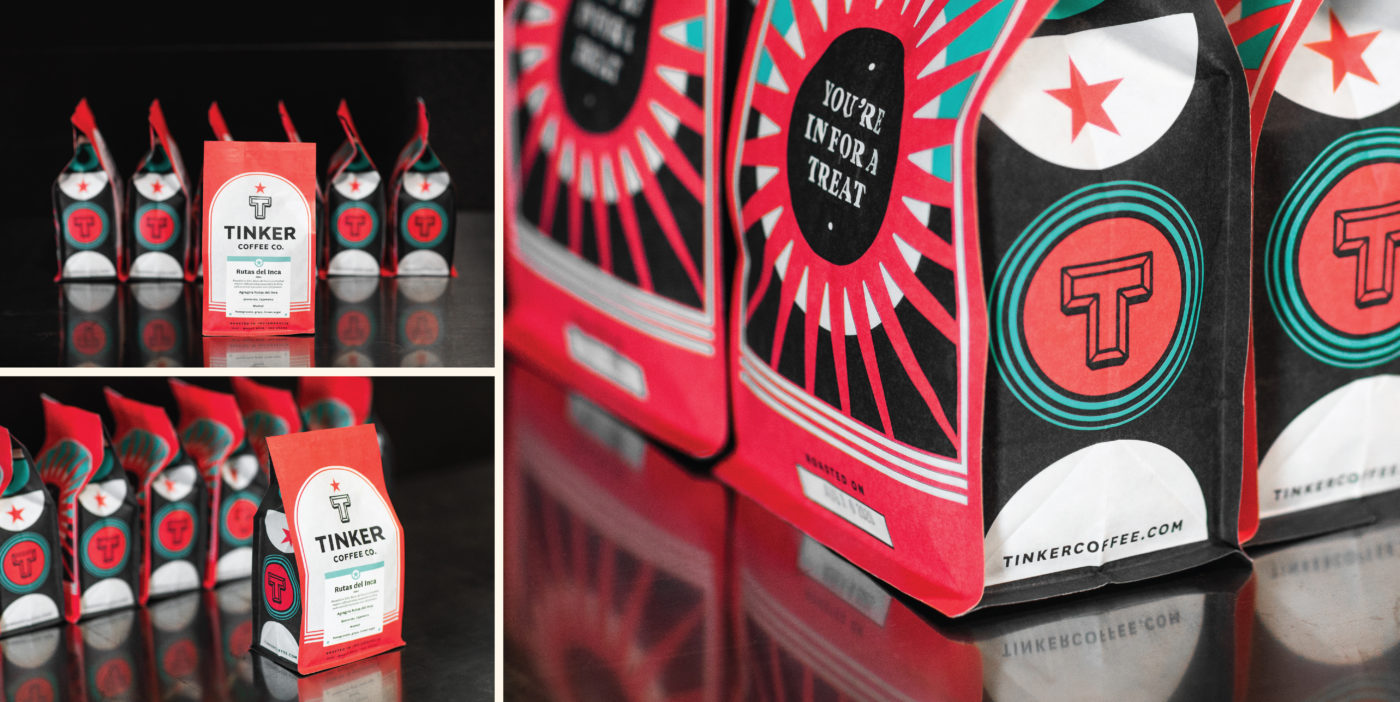Stories
Refreshing Tinker Coffee’s Brand
Scaling an Artisan Coffee Brand, Book Recommendations + Cold Brew World Domination?
I love working directly with company founders, especially when they’re still involved and passionate about day-to-day operations. Yeah, yeah—you’re supposed to scale and decentralize decisions and delegate everything to team members and make yourself obsolete so you never have to show up—but what’s the fun in a 4 hour workweek? I like working with founders who aren’t looking for a quick exit. People who view their business in and of itself as a creative endeavor—who enjoy running and gunning and solving problems and never slowing down long enough to even realize how far they’ve come.
Tinker Coffee is one of these businesses. Founders Steve Hall and Jeff Johnson, along with every single person in the company, move in lockstep. There’s an upbeat, optimistic enthusiasm that drips from their team. It’s 100% entrepreneurial spirit and it’s a lot of fun to see in action.
We’ve been working with Tinker on a brand evolution over the last year, starting with fleshing out their brand identity, revamping packaging, merch and a website overhaul. Rather than our typical long form project writeup, we wanted to invite them over to discuss, not just where they’ve been, but where Tinker is headed and how they intend to shape coffee culture in Indiana.


Kicking off, please introduce yourself—what’s your background, and what lead you to open Tinker Coffee?
 Jeff (Tinker)
Jeff (Tinker)
My name is Jeff Johnson. I am a husband, a father to two wonderful small children and I am one of the co-founders of Tinker Coffee.
I grew up in northern Indiana, graduated from Purdue and migrated south to Indianapolis with my now wife, Chanda Johnson. My first job after graduating was with IBM as a business consultant. It was 100% travel and since I’ve lived in Indiana my entire life, I saw it as a great opportunity to see different cultures around the world. I will forever be thankful for the great people I was fortunate enough to work with for 10 years at IBM. I can’t emphasize enough how my team members at IBM positively impacted me.
My entire adult life I have been interested in coffee. In college I convinced my fraternity to invest in an espresso machine. It was a hot topic as others had different ideas to spend the funds. Needless to say the espresso machine was broken the first night it arrived.
My interest in coffee grew while traveling for IBM. I remember when the idea of starting a coffee roastery popped in my head. I was staying at the Waterbury, Connecticut Marriott where I lived for nearly five years and in this hotel room one night I was frantically gathering information to figure out what was needed to start a coffee roasting business. I was way off.
Fast forward to 2014, Steve and I are brothers-in-law, both living in Indianapolis and hanging out with the family regularly. We started talking about coffee and he took to it. Our conversation and interest in specialty coffee grew and the plan to start a coffee roaster began to develop. At that point in our lives we were both ready to follow a passion and take a chance. Once we decided to go all in, the pieces came together. Steve found a roaster, I found a building and in November of 2014 Tinker Coffee was official.

How important is story to the average coffee consumer? Let’s say someone who actively seeks out “better” coffee.
 Jeff (Tinker)
Jeff (Tinker)
The story in the coffee industry is super important, and happens to be incredibly compelling to the average coffee consumer on its own.
When I’m drinking coffee I like to think about where that coffee came from and the thoughtfulness at each step in the process. It puts into perspective how interconnected our world is. It’s incredible that the continental US grows zero coffee and half of adults are drinking the beverage every day. The supply chain is remarkable.
Customers will remember a great cup of coffee. If they know the story of the coffee they are drinking, they will tell their friends. The story is the conduit to share information about a great cup of coffee. Think about co-workers talking at work. “I had a great cup of coffee” is not breaking news. “I had a great cup of coffee. It tastes like no coffee I’ve ever had and that’s because the farmer in Costa Rica used an experimental method to dry and process the coffee and this coffee is only available at Tinker Coffee.” That’s sticky.

What role has branding played in growing your presence throughout Indiana?
 Tinker
Tinker
Branding has been important for Tinker from day one. When we started Tinker of course our customers had never heard of Tinker Coffee. Our branding told customers what to expect from us. It also made Tinker seem larger and more established as a company. We regularly had customers visit our tiny micro roastery and say, “huh, I thought Tinker was bigger than this…”. They were constructing an image of Tinker Coffee from our packaging and branding which was greater than what we were.
It’s fun to think about what branding is and what the world would be like without branding. All coffee in exactly the same unnamed packaging. Just plain boxes labeled coffee on the grocery shelf.

Build a stronger brand.
Sell more beer.
Join 7,500+ other beer industry folks and sign up for our monthly Beer Branding Trends Newsletter.

Beer Branding Trends 2.0

What’s the most surprising thing you’ve learned as you’ve opened and scaled Tinker?
 Tinker
Tinker
People are the most important part of a company. I am regularly inspired and alway grateful for the team we have at Tinker. Tinker’s employees are enthusiastic, hard working, positive problem solvers.
One of the most surprising things that I have learned is to get out of the way when someone has a vision. Support them, listen, encourage them and get out of the way.

That’s a great segue into Tinker’s Gemini service. Can you tell us what that is and how it got its start?
 Tinker
Tinker
Tinker Gemini is a coffee catering service and was born from the idea of a Tinker employee, Alec Mandla. Alec had a coffee cart branded Lost and Found Coffee before joining Tinker and continued to run the coffee catering business while also working at Tinker. Alec enjoyed Lost and Found and wanted to focus his time on coffee catering so we decided mutually to fold the coffee cart into Tinker, rebranded it as Tinker Gemini and let Alec focus his time and energy on growing that business. Tinker Gemini offers a full, customizable coffee menu including drip, espresso, cold coffee and specialty drinks. Tinker Gemini is able to provide a cafe experience anywhere in the city. We now have three espresso carts and a dedicated catering van to provide customers with the best possible mobile experiencwe.

What is one thing you’d like to see change within the specialty coffee industry?
 Tinker
Tinker
The imbalance in the economics of the supply chain in specialty coffee. Many coffee producing regions are in areas of poverty and they are not fairly compensated for their efforts growing and processing coffee. We work with coffee importers like Sustainable Harvest whose mission is to solve this issue. There is not a solution to this problem at the moment, but there are organizations like Sustainable Harvest that bring stakeholders along the supply chain together to discuss the challenges. I feel lucky to have been a guest at one of these events. It was a great learning experience.

I live in a bubble where everyone drinks cold brew, nitro cold brew, canned cold brew, etc. I imagine it will never rise to the level of hot coffee consumption, but where do you see this trend going over the next ten years?
 Tinker
Tinker
Cold brew has seen enormous growth in recent years and I think this will continue. Cold coffee certainly has a lot going for it. On a hot day it’s incredibly refreshing. Nitro coffee has a great creamy mouthfeel without any additives other than nitrogen. I love it.
The greatest things cold coffee has going for it are consistency, convenience, and the ability to scale. Cold coffee gives a brand the ability to completely control the end product. With traditional coffee there is always a chance the beverage is messed up with an incorrect dose, yucky water, bad grind and so on. Pre-packaged cold coffee is also more convenient than pod coffee and even instant coffee.
The downside to cold coffee is in distribution. Shipping and displaying beverages that have to stay cold (and delicious cold coffee has to stay cold) is expensive compared to shipping dry whole bean coffee. Also, as a rule of thumb, hot coffee is more delicious.

Is there space for innovation in coffee or do you have to continually refine and execute the fundamentals forever?
 Tinker
Tinker
Of course there is space for innovation! This is America.
That being said the fundamentals are the keystone of what we do. Sourcing, roasting and distributing delicious coffee allows us to do the other projects we enjoy.

What is the biggest mistake you’ve made so far? Or asked another way, is there anything you’d go back and do differently now that you’ve got some time in the market under your belt?
 Tinker
Tinker
I would say ‘yes’ more often. In the early days I was worried about one wrong move collapsing the company. Looking back, I think I would say yes to opportunities more often. Testing ideas can co-exist with limited risk.

Do you have any advice, branding or otherwise, for people who are considering opening a coffee company?
 Tinker
Tinker
Know your identity and stick to it. You can’t be everything to everyone. Be yourself and your customers will find you.

Any book / podcast / website recommendations for people in the coffee / food / beverage world?
 Tinker
Tinker
Steve shared Danny Meyer’s book, Setting the Table, a few years back. His approach to hospitality is of course relevant in our industry. I have also found Danny’s approach to serving people and how to be generally kind and pleasant a helpful reminder in everyday life. He’s an inspiring figure.

If you had an unlimited budget, what would you do / buy / invest in over the next year?
 Tinker
Tinker
If we had an unlimited budget I would buy CODO and have you design packaging and merch all day every day. In all seriousness, it would be great to have a full time design / artistic team with no budget…
Cafes. I would invest in building beautiful inspirational cafes and create experiences that make people’s lives better.
To support the goal of making people’s lives better, I would invest in technology to support customer facing interactions and also integrate our backend systems to streamline the business and ensure our employees and customers have a world class experience.

CODO isn’t for sale. But you can have Cody for 10 kegs of nitro cold brew. Anyway, what’s your grand vision for Tinker? And what can we expect to see from you guys over the next year or two?
 Tinker
Tinker
We’re super excited to open our cafes in the Indianapolis Airport. The Indy Airport is a gem and a source of great pride in Indiana. It consistently is rated as the top airport in the US and we feel very fortunate to be part of the experience at the Indy Airport.
You’ll see Tinker interacting more directly with consumers in the next few years. Both at the Indy Airport and other Tinker Cafes around the city.
We’re also working on ways to improve our monthly subscription. We’ve consistently received positive feedback on Tinker’s subscription and we want to make sure we continue to provide value to our customers and give the people what they want.
My 30,000 foot grand vision for Tinker is to spread happiness. If we can make people happy in our limited interactions with them, then our time and efforts at Tinker are worth it.

Build a stronger brand.
Sell more beer.
Join 7,500+ other beer industry folks and sign up for our monthly Beer Branding Trends Newsletter.

